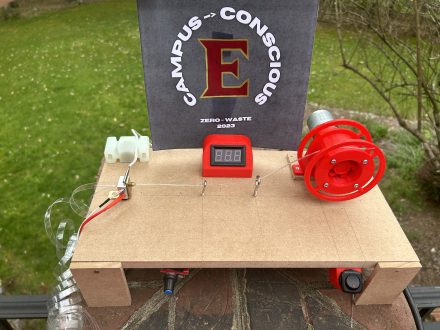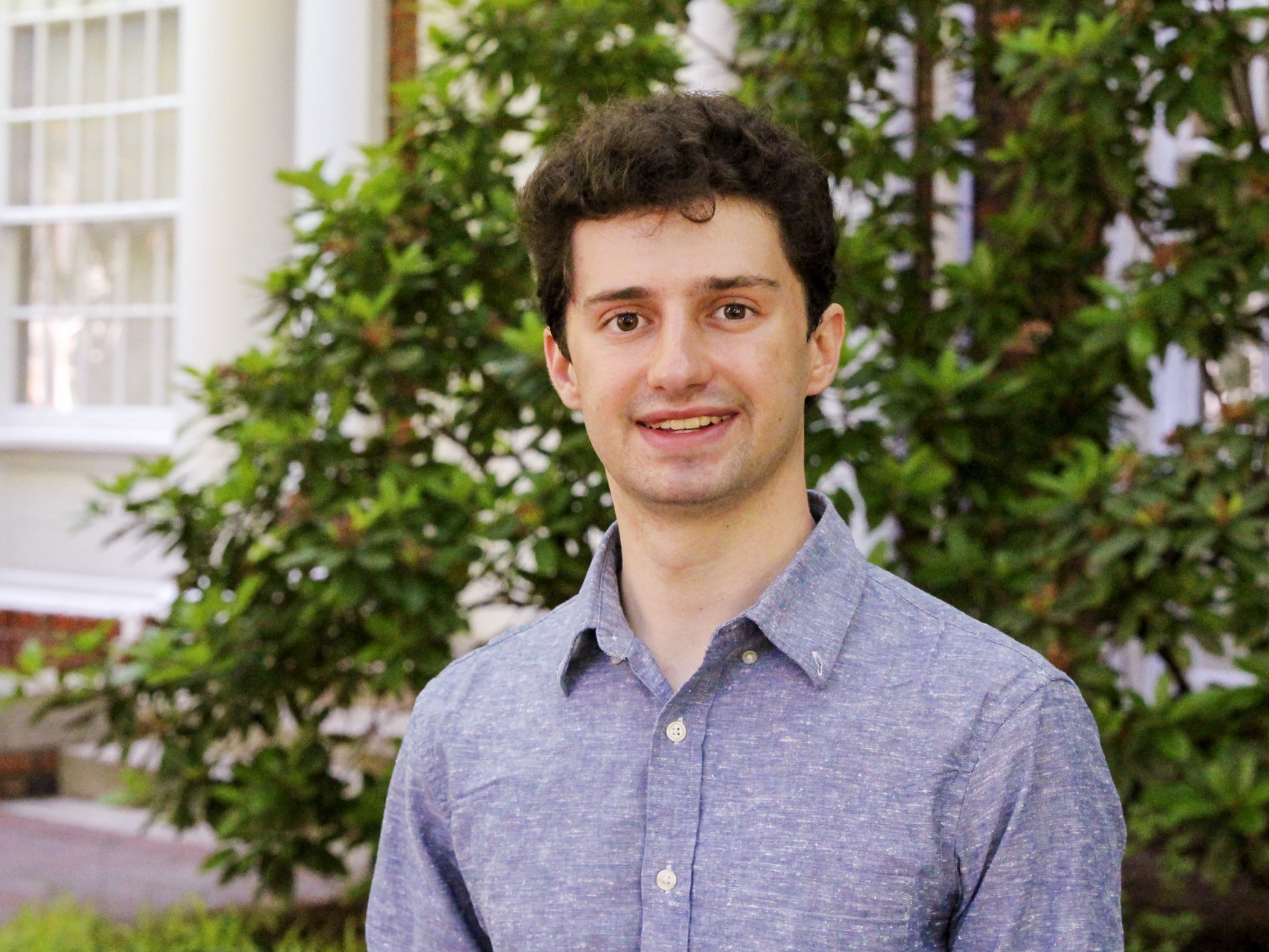Satko's Campus Conscious system, recycling plastic bottles into 3D printing filament linked to an online rewards app, won this year's Elon Innovation Challenge.
Aaron Satko ’25 is always looking for problems to solve.
When he encounters one — automatic doors that don’t work just right, cardboard shipping boxes that waste too much space — he jots it down in a notebook he carries. Then his mind gets to work, roiling and churning it over, waiting for the spark of invention to ignite.

Learning of this year’s Elon Innovation Challenge — focused on waste reduction — his thoughts leapt to the enormous amount of trash created by our consumption of single-use plastic bottles. Globally, we use an estimated 1.2 million plastic bottles per minute with less than 9% of those recycled.
Satko, a computer science major from Lewisville, North Carolina, had heard of plastic bottles being recycled as 3D-printing filament. The real problem he wanted to solve was encouraging Elon students to toss their bottles into recycling bins. Taking inspiration from open-source designs, Satko devised the Campus Conscious PET-cycler system: a prototype that cuts and melts polyethylene terephthalate plastic bottles into into filament, paired with an app that incentivizes recycling by turning those bottles into reward points students can redeem on campus. The process reuses about 90% of the bottle, leaving only the base and screwtop.
“PET plastic is one of the best for 3D printing because it’s strong and has high heat-resistance,” Satko said. “I didn’t invent this process, but I upgraded some of the designs in my prototype, and the app adds a dimension that connects it with students.”
The Elon Innovation Challenge is an annual competition sponsored by the Doherty Center for Creativity, Innovation and Entrepreneurship that allows students to identify and work through innovative solutions for a specific problem. This year’s challenge joined with the Campus Race to Zero Waste initiative, a nationwide competition to inspire college campuses to seek ways to eliminate trash.
Satko’s Campus Conscious initiative bested about 25 other entries, which included strategies to reduce waste in dining halls, increase composting, repurpose items and raise awareness of environmental issues.
“I hate seeing trash everywhere, and I try to do my share of cleaning up when I see it. I’ve always felt that way, and it’s why I wanted to participate in the challenge this year,” Satko said. “The Innovation Challenge is one of the best things about my college experience so far. I participated last year and it’s just a great thing. I’m grateful to (Doherty Center Director) Alyssa Martina and the Doherty Center for offering this challenge.”
Satko’s grand prize included $2,500. He’s already invested some of those winnings into his eBay business refurbishing computers. He buys computers auctioned off by schools and universities and spends his weekends at home repairing and reselling them. The prize money afforded him new computer repair tools, and he’s looking forward to putting into use the knowledge he continues to gain in computer science courses.
In the future, Satko hopes to parlay his computer science degree into invention and entrepreneurship.
“I want to have a big idea and great invention one day. I think that would be great.”
So, he’s keeping that notebook handy, ready for inspiration to strike.



